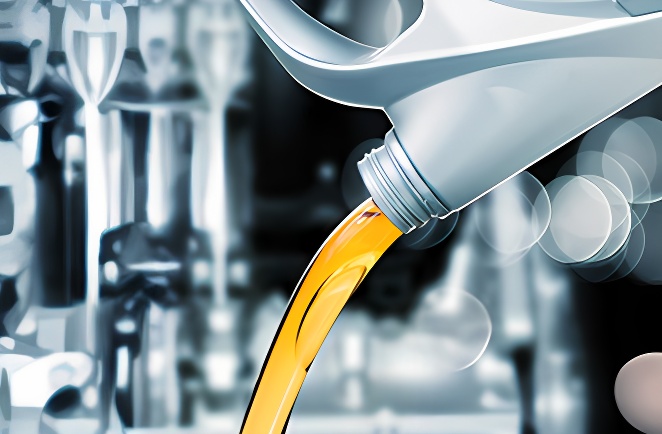Exploring the Versatile Applications of Hydraulic Oil in Modern Machinery and Industrial Systems for Enhanced Performance and Efficiency
Hydraulic oil is the lifeblood of modern machinery and industrial systems, playing a pivotal role in ensuring smooth operations, enhanced performance, and energy efficiency. From construction equipment to manufacturing plants, hydraulic systems rely on this specialized fluid to transmit power, lubricate components, and protect against wear and corrosion. As industries continue to evolve, the demand for high-performance hydraulic oils has grown, driven by the need for sustainability, longevity, and cost-effectiveness. This article delves into the multifaceted applications of hydraulic oil, exploring how it contributes to the efficiency and reliability of contemporary machinery and industrial processes.
The Role of Hydraulic Oil in Power Transmission
One of the primary functions of hydraulic oil is to transmit power within hydraulic systems. Unlike mechanical systems that rely on gears and levers, hydraulic systems use fluid pressure to generate force, enabling precise control over heavy machinery. Hydraulic oil\'s incompressibility ensures that power is transferred efficiently, minimizing energy loss and maximizing output.
Moreover, hydraulic oils are formulated to maintain their viscosity under varying temperatures and pressures, ensuring consistent performance. This characteristic is particularly crucial in industries like aerospace and automotive manufacturing, where equipment must operate under extreme conditions. By facilitating seamless power transmission, hydraulic oils help reduce downtime and improve productivity.
Lubrication and Wear Protection
Beyond power transmission, hydraulic oils serve as excellent lubricants, reducing friction between moving parts. Friction is a leading cause of wear and tear in machinery, leading to costly repairs and replacements. High-quality hydraulic oils contain additives that form a protective film on metal surfaces, preventing direct contact and minimizing wear.
In industrial systems such as presses, injection molding machines, and conveyor belts, the continuous movement of components demands reliable lubrication. Hydraulic oils not only extend the lifespan of these components but also enhance their operational efficiency. Regular maintenance and the use of premium hydraulic oils can significantly reduce maintenance costs and downtime.
Thermal Regulation and Cooling
Hydraulic systems generate substantial heat during operation, which can degrade performance and damage components if not managed properly. Hydraulic oils play a critical role in dissipating this heat, acting as a coolant to maintain optimal operating temperatures. The oil absorbs heat from high-friction areas and transfers it to cooler parts of the system or external heat exchangers.
In heavy machinery like excavators and bulldozers, thermal regulation is essential to prevent overheating and ensure uninterrupted operation. Advanced hydraulic oils are designed with thermal stability in mind, resisting oxidation and breakdown even under prolonged exposure to high temperatures. This capability is vital for industries that operate in harsh environments, such as mining and agriculture.
Contamination Control and System Cleanliness
Contaminants like dirt, water, and metal particles can compromise the performance of hydraulic systems, leading to clogged filters and component failure. Hydraulic oils are engineered to suspend these contaminants, preventing them from settling and causing damage. Additionally, many hydraulic oils contain detergents and dispersants that keep the system clean by breaking down sludge and deposits.
In precision industries like semiconductor manufacturing and pharmaceuticals, even minor contamination can disrupt production. Hydraulic oils with superior filtration properties ensure that systems remain clean and operational, reducing the risk of costly interruptions. Regular oil analysis and replacement further enhance contamination control, safeguarding system integrity.
Environmental and Economic Benefits
The shift toward eco-friendly hydraulic oils reflects the growing emphasis on sustainability in industrial operations. Biodegradable and synthetic hydraulic oils are gaining popularity due to their lower environmental impact and longer service life. These oils reduce the frequency of disposal and minimize the risk of pollution, aligning with global environmental regulations.
From an economic perspective, investing in high-performance hydraulic oils translates to long-term savings. Enhanced efficiency, reduced maintenance, and extended equipment life contribute to lower operational costs. Industries that prioritize quality hydraulic fluids often experience improved ROI, making it a smart choice for forward-thinking businesses.
In conclusion, hydraulic oil is a cornerstone of modern machinery and industrial systems, offering unparalleled benefits in power transmission, lubrication, thermal regulation, and contamination control. As technology advances, the development of specialized hydraulic oils will continue to drive efficiency and sustainability across industries. Understanding these applications empowers businesses to make informed decisions, optimizing performance and achieving operational excellence.
SUBSCRIBE
INQUIRY

